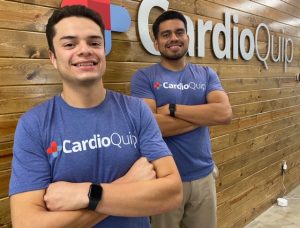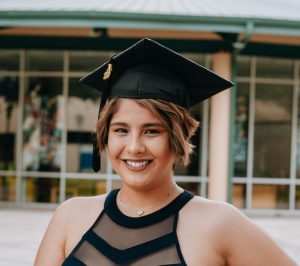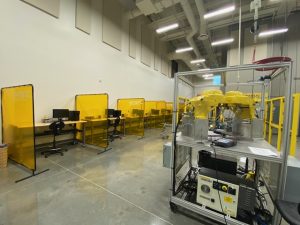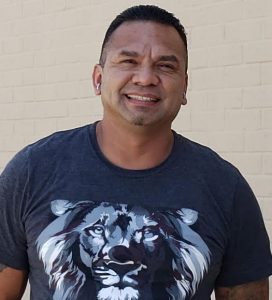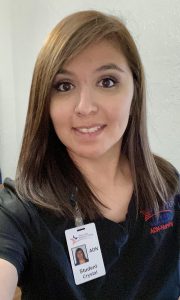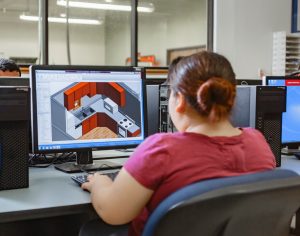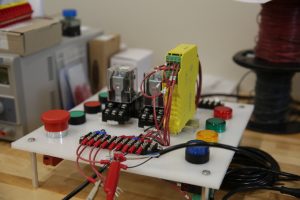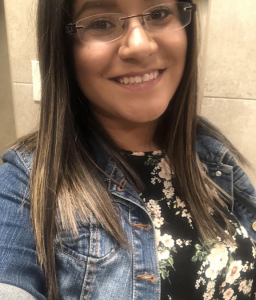(WACO, Texas) – As doctors and nurses battle the COVID-19 pandemic, biomedical equipment technicians are alongside them keeping devices and machines functioning.
CardioQuip in College Station has two Texas State Technical College alumni encountering the most serious work they have done so far in their careers. David De La Hoya is a training associate and Noe Martinez is a training manager at the company.
The company’s equipment is used in the cardiovascular and respiratory therapy fields. The equipment includes mini-carts and cooler-heater systems.
“The maintenance and upkeep for medical equipment is very important and crucial,” De La Hoya said. “There is not a single device you can create that does not need upkeep or maintenance. It gives the technicians purpose knowing (that) potentially any biomedical device can save a life.”
Martinez said he and his co-workers are reminded that the equipment they work on is going to be connected to somebody.
“That could be someone close to you,” he said. “You cannot just go and work on a device and just think it is a piece of machinery. It is not. It is connected to someone, helping them get through their obstacle in life that unfortunately has been something negative like an illness or procedure. You always have to remember at the end of the day, what you are working on makes a difference.”
Martinez’s work involves coordinating and implementing training for technicians and overseas business suppliers. He and De La Hoya recently completed trainings by teleconference for Chinese and German counterparts.
“We have had to learn and adapt and overcome these obstacles that COVID-19 has brought up in front of our industry,” Martinez said. “We have learned about media equipment and software, and how best to use those applications to help the end users and customers learn how to use our devices.”
Service work on equipment must still be done in person. Martinez said having access to hospitals now means that additional steps must be taken. He said some hospitals require a negative COVID-19 test 48 hours before arrival to work on equipment, and there are more disinfecting and sanitizing protocols.
“We have to have technicians get tested or just have records of having negative tests prior to showing up to the facility,” Martinez said.
Martinez recounted a recent trip to the Northeast for an emergency device repair.
“It is a lot different than when I first started traveling,” he said. “The airport used to be very busy, and security lines used to be very long. Now, airports are quiet, security lines are short, and there are more precautions and more social distancing.”
During the pandemic, De La Hoya has been to a hospital four times for training purposes.
“Noe and I are kind of like a home base, kind of like a call center, on call for the technicians due to the fact there are different time zones,” De La Hoya said. “We always have to watch out for the technicians. They go on their own schedule and may need service information throughout that time. Not only do we do training, but we are master technicians.”
De La Hoya joined CardioQuip shortly after graduating from TSTC‘s Waco campus in 2019. He earned associate degrees in Biomedical Equipment Technology and Medical Imaging Systems Technology Specialist. He started as a field service technician, traveling the country on work assignments. Now he works with new technicians to ease them into the company’s work.
“Once the training team feels like they have got a basic understanding of the unit, we take them out in the field,” De La Hoya said. “Either Noe or I will take them out, or a senior technician, and show them how to implement the knowledge and communicate in the field.”
De La Hoya said prospective students, who are either in high school or already in the workforce and need a change, do not necessarily have to go to a four-year university.
“TSTC can be a great stepping-stone to create opportunities in your career,” he said. “I believe technical colleges are underrated. You can make a great living going to a two-year school and be fine with that the rest of your life.”
De La Hoya grew up in Italy, Texas in Ellis County and is a graduate of Italy High School. He knew people who had gone to TSTC, but a recruiter who visited his agriculture class during his junior year made him think about his future.
“One thing that geared me toward TSTC is how affordable it is compared to other colleges in the area,” De La Hoya said. “I wanted to invest in myself.”
Martinez grew up in Fredericksburg and is a graduate of Fredericksburg High School. He became familiar with TSTC through a relative who graduated from the Automotive Technology program. Martinez graduated in 2017 with an Associate of Applied Science degree in Automotive Technology from TSTC’s Waco campus.
“All the knowledge I gained in the Automotive Technology program translated to the biomedical equipment field,” he said. “It wasn’t necessarily an easy transition. I did have to do my own self-educating to learn about specific things that were not in automotive technology education.”
Registration for the fall semester is underway.
For more information on Texas State Technical College, go to tstc.edu.
